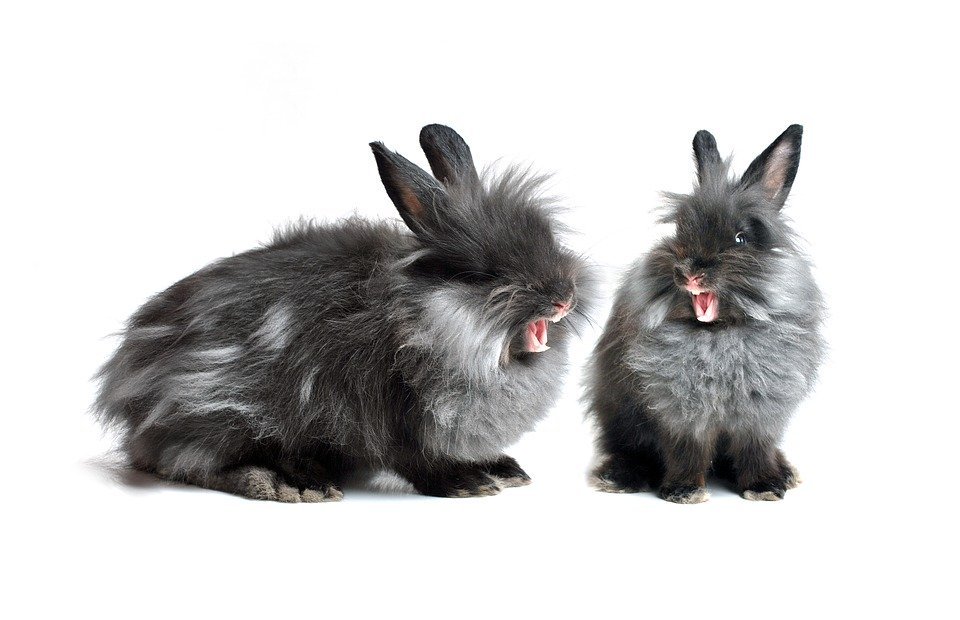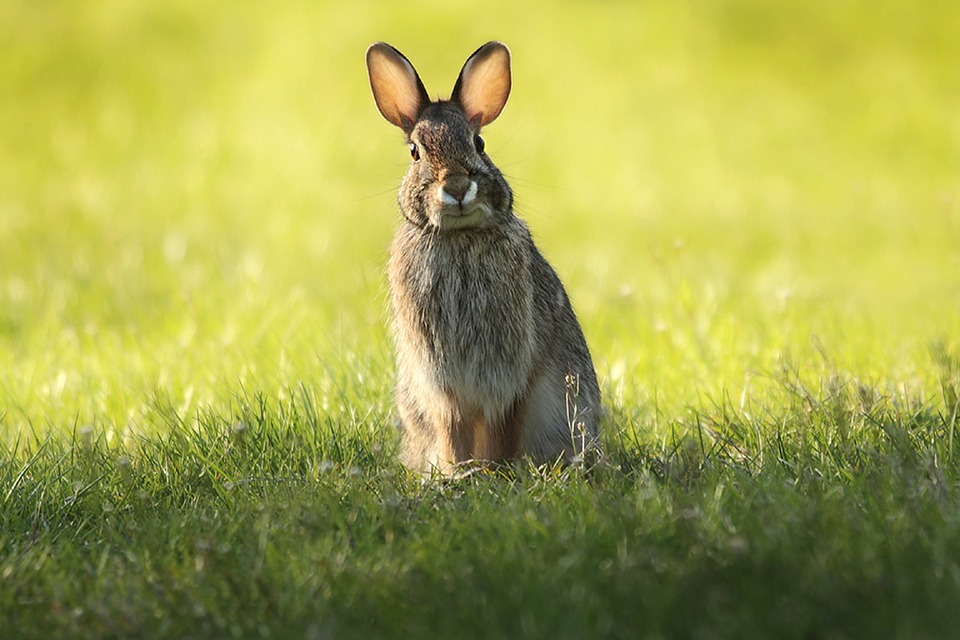This comprehensive guide explores the complexities of feeding orange peels to rabbits. We delve into the nutritional value, potential risks, and practical advice for rabbit owners. Discover the truth behind this seemingly harmless treat and learn how to make informed decisions about your rabbit's diet.
Part 1: Unveiling the Nutritional Profile of Orange Peels

1.1. A Treasure Trove of Essential Oils and Flavonoids
Orange peels are a rich source of essential oils, particularly limonene. This potent compound boasts antioxidant and anti-inflammatory properties, contributing to the distinctive aroma and flavour of oranges. Additionally, orange peels contain various flavonoids, including hesperidin and naringenin. These powerful antioxidants possess anti-cancer properties, further showcasing the potential benefits of orange peels.
1.2. A Source of Vitamin C and Dietary Fibre
While oranges are renowned for their high vitamin C content, the peels also contribute to this nutritional profile. However, it's essential to note that the amount of vitamin C present in orange peels is significantly lower than in the flesh. Furthermore, orange peels are a good source of dietary fibre, which is crucial for maintaining a healthy digestive system.
Part 2: Exploring the Potential Risks Associated with Orange Peels

2.1. Digestive Distress: A Delicate Balance
Rabbits are herbivores with sensitive digestive systems, primarily adapted for processing high-fibre diets. Orange peels, despite containing fibre, are not readily digestible by rabbits. This can lead to digestive upset, manifesting as gas, bloating, diarrhoea, and constipation.
2.2. Toxicity Concerns: The Impact of Essential Oils and Citric Acid
While orange peels are not inherently toxic to rabbits, they contain compounds that can pose problems in significant quantities. The essential oils, especially limonene, can irritate the gastrointestinal tract, potentially causing vomiting or diarrhoea. Moreover, the citric acid in orange peels can disrupt the delicate pH balance in a rabbit's stomach, further contributing to digestive distress.
2.3. Allergic Reactions: A Potential Trigger
Rabbits can develop allergies to various substances, including citrus fruits. Orange peels may trigger allergic reactions in sensitive rabbits, leading to skin irritation, itching, and potentially even respiratory distress.
Part 3: The Verdict: Can Rabbits Eat Orange Peels?
3.1. General Recommendations: Prioritising Safety
Given the potential risks associated with orange peels, it is generally not recommended to feed them to rabbits. The benefits they offer are outweighed by the potential digestive problems, toxicity concerns, and allergy risks.
3.2. Avoiding Orange Peels: A Safe Choice
Rabbit owners should prioritize providing safe and nutritious foods, such as fresh hay, a variety of vegetables, and a small amount of high-quality pellets. Avoid offering orange peels, as well as other citrus fruits, to your rabbit.
3.3. Seeking Veterinary Advice: Expert Guidance
If you have any concerns about your rabbit's diet or if you suspect they may have ingested orange peels, consult with a veterinarian immediately. They can provide expert advice and guidance tailored to your rabbit's individual needs.
Part 4: Exploring Safe and Nutritious Alternatives to Orange Peels
4.1. A Menu of Safe Treats: Delightful and Healthy Options
Instead of orange peels, offer your rabbit a variety of safe and nutritious treats. These can include:
- Fresh herbs: Parsley, cilantro, basil, and dill are excellent choices, adding flavour and variety to their diet.
- Safe vegetables: Bell peppers, carrots, cucumbers, and spinach are good options, providing essential vitamins and minerals.
- Fruits: Apples, bananas, and strawberries are safe in moderation, offering a sweet treat. Remember to remove seeds and cores before offering.
4.2. Ensuring Dietary Balance: A Healthy Foundation
It is crucial to ensure your rabbit's diet is balanced and meets their nutritional requirements. Consult with a veterinarian or rabbit-savvy professional to establish a suitable feeding plan for your rabbit, considering their age, breed, and individual needs.
Part 5: Unveiling the Truth About Orange Peels: Common Questions and Answers
5.1. Is a Small Amount of Orange Peel Acceptable?
It is not recommended to feed orange peels to rabbits, even in small quantities. The risks associated with them outweigh any potential benefits. Even a tiny piece can cause digestive upset, toxicity concerns, or trigger allergies.
5.2. What If My Rabbit Accidentally Ate an Orange Peel?
If you suspect your rabbit has eaten an orange peel, observe them closely for any signs of digestive upset, such as diarrhoea, vomiting, or lethargy. If you notice any unusual symptoms, contact your veterinarian immediately for guidance and potential treatment options.
5.3. Does Cooking Orange Peels Make Them Safe?
Cooking orange peels does not remove the potential risks associated with them. They can still cause digestive problems and allergies. The heat may alter the flavour, but the compounds responsible for the risks remain present.
5.4. Are There Any Citrus Fruits Safe for Rabbits?
While most citrus fruits are not recommended for rabbits, some sources suggest that small amounts of grapefruit may be safe. However, it is always best to consult with a veterinarian before introducing any new foods to your rabbit's diet.
5.5. Can I Use Orange Peel as Bedding for My Rabbit?
Orange peels are not suitable for rabbit bedding. They can cause irritation to your rabbit's skin and respiratory system. Choose a safe and absorbent bedding material designed specifically for rabbits, such as hay, wood shavings, or paper-based bedding.
5.6. Are There Any Benefits to Feeding Orange Peels to Rabbits?
While orange peels contain some nutrients, they are not essential for rabbits' health. The potential risks associated with them far outweigh any potential benefits. Focus on providing a balanced diet of fresh hay, vegetables, and a small amount of pellets to ensure your rabbit's well-being.
5.7. Can I Feed Orange Peels to My Rabbit if They Are Dehydrated?
No, feeding orange peels to a dehydrated rabbit is not recommended. The citric acid in orange peels can further dehydrate your rabbit, worsening their condition. Contact your veterinarian immediately for appropriate treatment.
5.8. My Rabbit Loves to Eat Orange Peels – What Should I Do?
While your rabbit may enjoy the taste of orange peels, it is important to prioritize their health and well-being. Do not encourage this behaviour and stick to a safe and balanced diet. Redirect their attention to safe and nutritious treats and gradually introduce new foods under veterinary guidance.
5.9. Can I Offer Orange Peels to My Baby Rabbit?
Absolutely not. Baby rabbits have even more sensitive digestive systems than adult rabbits. Avoid offering orange peels or any other citrus fruits to baby rabbits. Focus on providing a diet specifically designed for their needs, such as rabbit milk replacer or a special formulated diet for baby rabbits.
Part 6: A Final Thought: Understanding Your Rabbit's Needs
Remember, a balanced diet is essential for your rabbit's overall health and well-being. While orange peels might seem like a tempting treat, they pose significant risks that outweigh any potential benefits. Prioritise providing a safe and nutritious diet, consulting with a veterinarian for guidance, and ensuring your rabbit's happiness and longevity.
Everyone is watching
-

Do Rabbits Lay Eggs? (The Surprising Truth)
OTHER TYPES OF PETSThis article will unravel the common misconception that rabbits lay eggs, exploring the fascinating world of r...
-

What's a Group of Rabbits Called? (A Comprehensive Guide)
OTHER TYPES OF PETSThis article delves into the fascinating world of rabbits, exploring the various terms used to describe a grou...
-

Can Rabbits Eat Grapes? A Guide to Safe Rabbit Treats
OTHER TYPES OF PETSThis comprehensive guide will explore the safety and suitability of grapes for rabbits, providing detailed inf...
-

Predators That Hunt Rabbits: A Guide to Natural Enemies
OTHER TYPES OF PETSI've always been fascinated by the circle of life, that delicate dance between predator and prey. Growing up ...
-

Are Rabbits Nocturnal Animals?
OTHER TYPES OF PETSThe question of whether rabbits are nocturnal animals is a fascinating one, with a surprisingly complex answer...
